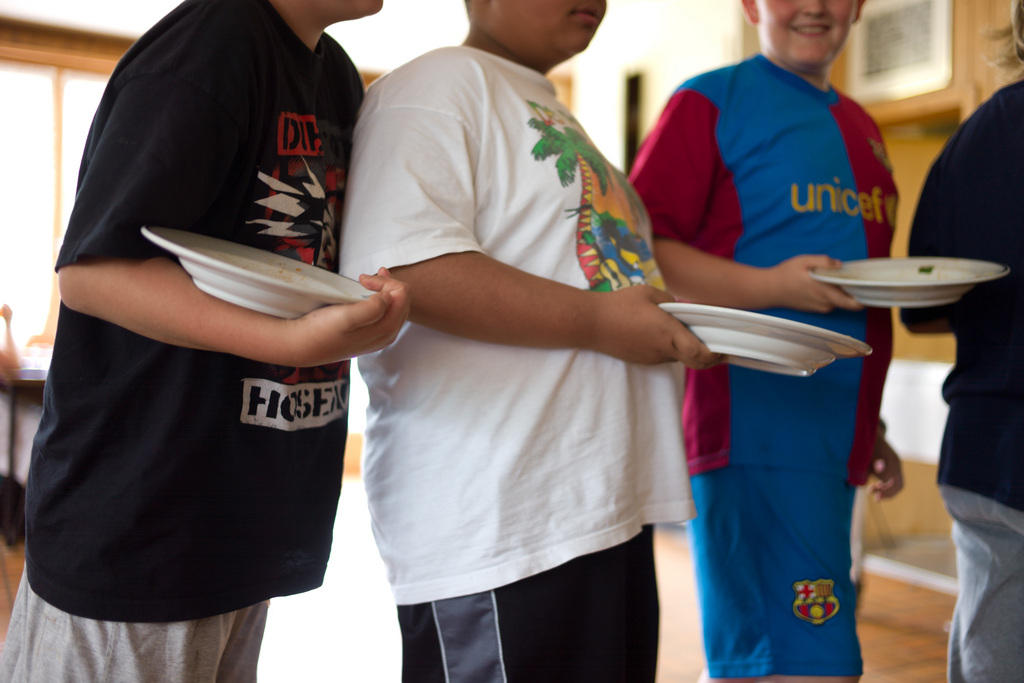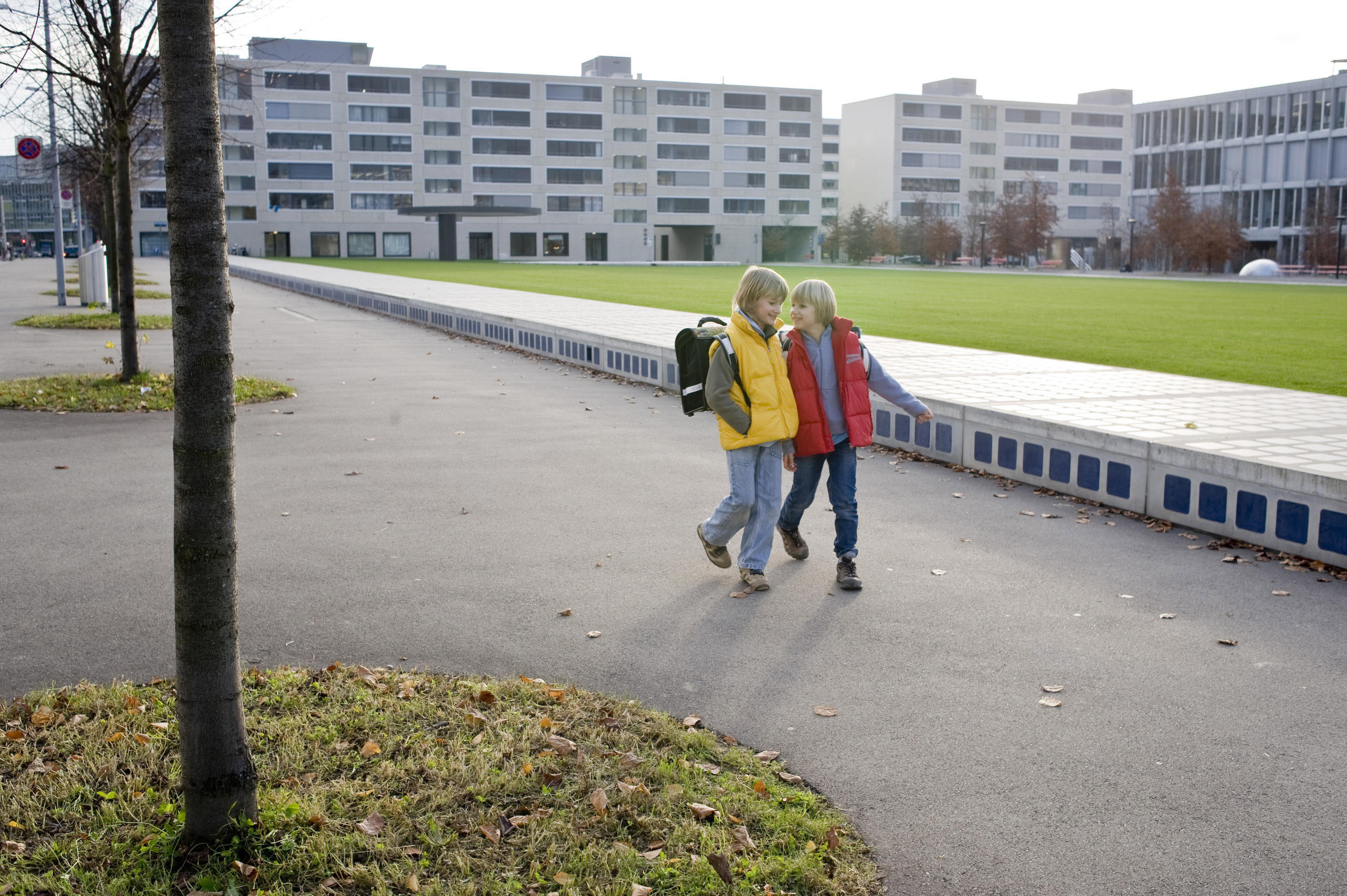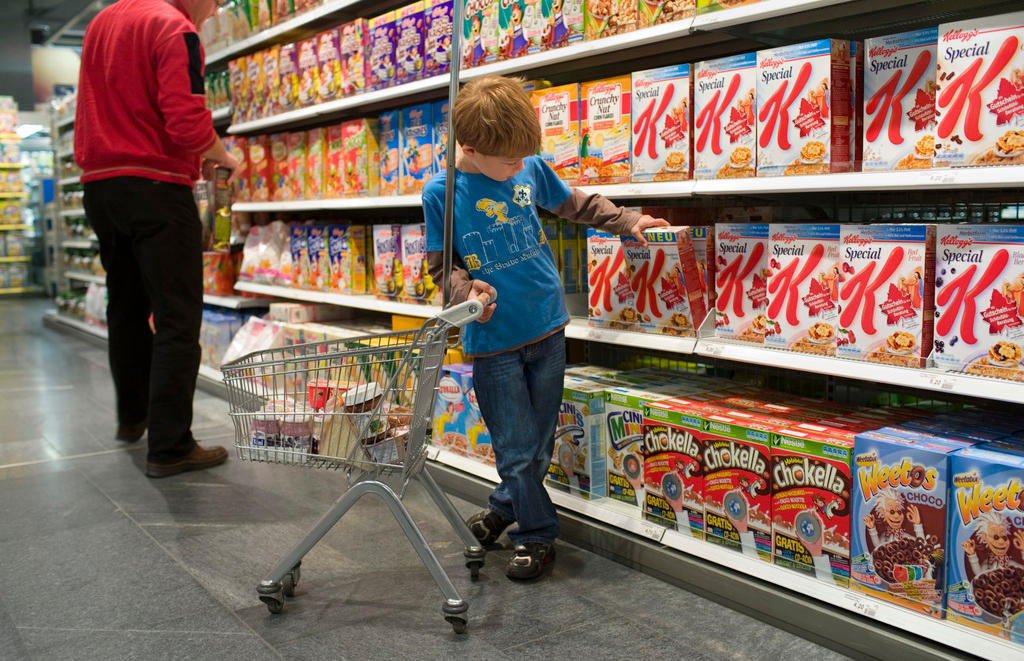Obesity less common among Swiss kids

Worldwide, the numbers of obese and overweight children are growing rapidly, but less so in Switzerland.
The number of obese children and adolescents aged 5-19 has risen tenfold over the past four decades, reports the World Health Organization (WHO)External link. Wednesday, October 11, is World Obesity Day.
“If current trends continue, more children will be obese than moderately or severely underweight by 2022,” states a study led by the WHO and Imperial College LondonExternal link and published in The LancetExternal link journal.
In 1975, fewer than 1% of the world’s children and adolescents were obese. As of 2016, it was nearly 6% of all girls and almost 8% of all boys for a total of 124 million. An additional 213 million were overweight in 2016.

More
Children more likely to walk to school in Switzerland
In Switzerland, 7% of boys and 4.6% of girls are obese. In Germany, it’s 11% and 7%, respectively, and in the US, a remarkable 23.3% (boys) and 19.5% (girls). The numbers of seriously overweight children are on the rise in low- and middle-income countries, and have hit a plateau in higher-income countries, says lead author Majid Ezzati of Imperial’s School of Public Health.
“These worrying trends reflect the impact of food marketing and policies across the globe, with healthy nutritious foods too expensive for poor families and communities. The trend predicts a generation of children and adolescents growing up obese and at greater risk of diseases, like diabetes. We need ways to make healthy, nutritious food more available at home and school, especially in poor families and communities, and regulations and taxes to protect children from unhealthy foods,” Ezzati said in a statement.
At the other end of the spectrum, 192 million of the world’s children and adolescents are moderately or severely underweight.
Healthy Swiss lifestyle?
So what is it about the Swiss lifestyle that helps prevent children from piling on too many pounds?
“Swiss children benefit from healthy foods in schools and opportunities for physical activity; urban environments cater well for safe walking, cycling, etc., and school playgrounds are open after hours,” WHO communications officer Paul Garwood told swissinfo.ch. “And as a whole, the population is well-educated and aware of health issues,” he added, noting that Switzerland has a “good referral system for children found to be in need of weight management”.
Indeed, it is common for children in Switzerland to walk to school, and there are support groups for kids who need to lose weight. Last month, the interior ministry and the Swiss food industry agreed on measures to further cut sugar in yogurts and breakfast cereals. Some 19% of 5-to-19-year-olds in Switzerland are overweight; among kindergarten pupils, it’s 16.5%.
As for adults in Switzerland, 41% are overweight, and 10.3% are obese – making Switzerland average in comparison with other OECD countries. However, twice as many men as women are overweight, reports the Swiss Statistical Office.
Breath test for fat burning
Meanwhile, researchers at the Swiss federal technology institute ETH Zurich (ETHZ) have figured out a fast new way to tell whether people are actually burning fat when they exercise.
Current methods require blood or urine tests, but thanks to a sensor, the person simply has to blow into a tube. ETHZ and University Hospital scientists introduced their method on Tuesday.

In compliance with the JTI standards
More: SWI swissinfo.ch certified by the Journalism Trust Initiative
















You can find an overview of ongoing debates with our journalists here . Please join us!
If you want to start a conversation about a topic raised in this article or want to report factual errors, email us at english@swissinfo.ch.